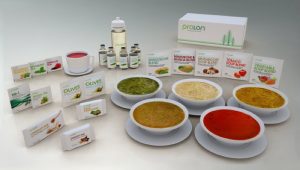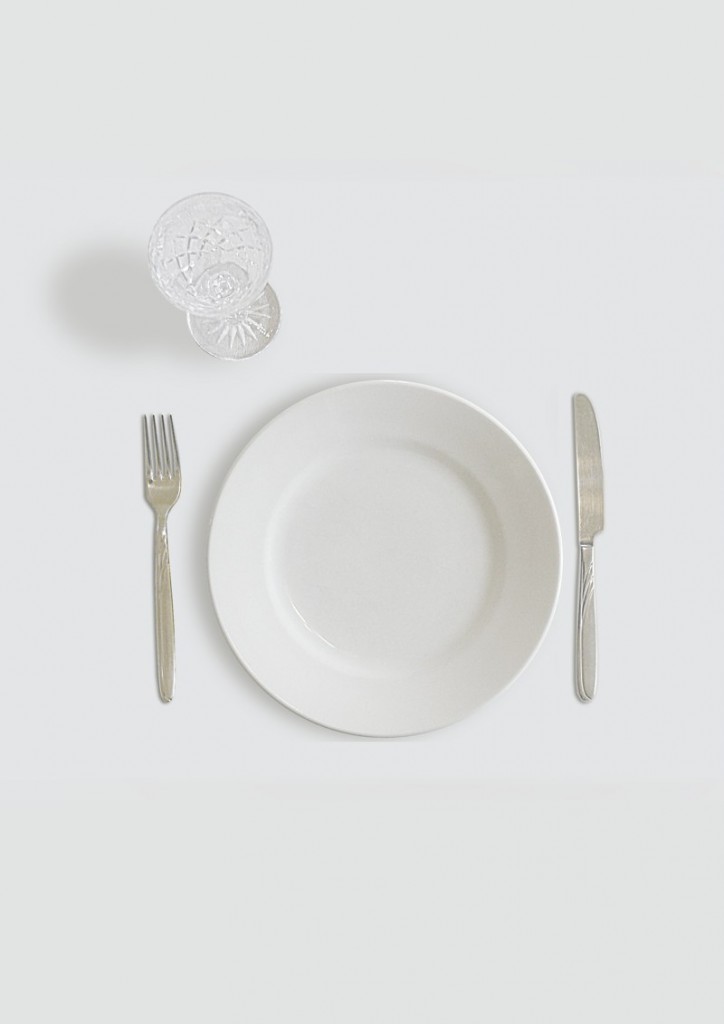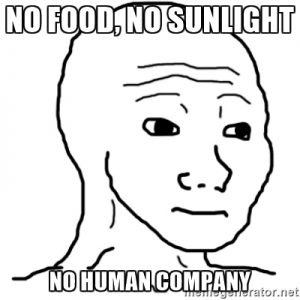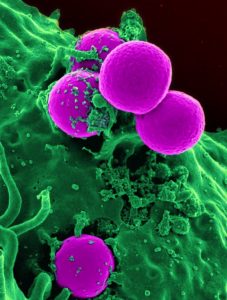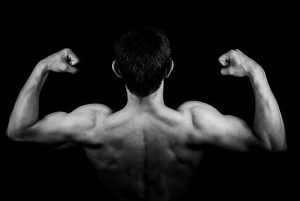A while back, our cofounder Jack decided to see what life would be like without food for 5 days (IRONY: TOP SCORE). Partly as a personal challenge, but mainly to raise money for Cancer Research UK (in the end we raised near to £700).
So – what is a 5-day water fast like, why the hell would you undertake one, and what are the physical and mental effects of not eating for days? Most importantly: is it worth it? Read on to find out:
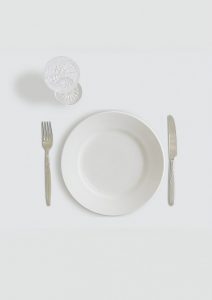
DISCLAIMER:
This is not an endorsement of fasting, Jack is not a doctor, and does not play one on the internet – please do not construe any of this as medical advice and don’t do anything like this without consulting a medical professional first. Look after yourself.
What is it?
5 days consuming no calories – no solid or liquid foods. Zero calorie drinks are allowed (such as water and unsweetened green tea). Black coffee is allowed in moderation (because black coffee on an empty stomach can be pretty rough…). Chewing gum is permissible if you want (but not advised…).
What was it like for me (in a nutshell?)
A rollercoaster of human emotions that will leave you physically cold – but not particularly hungry. An amazing, challenging and valuable experience which I will repeat in the future.
Why do it?
Evolutionary biology says…:
OK, let’s start at the beginning…
The modern human, as we recognise them (homo sapiens sapiens) have existed for about 200,000 years. For about 12,000 years we have had a more plentiful source of food (i.e agriculture) – and even then, perhaps only in the last few hundred years have we had a totally reliable source of calories (and sadly some people don’t even have that today).
Basically what I am getting at is that for 180,000 years or so, humans have ‘done OK’ with unreliable access to food.
My personal philosophy:
I am of the (perhaps old fashioned) opinion that modern life is too easy on us.
I will purposefully do the hard thing – whether that’s cold showers, always taking the stairs, not eating for a few days, or any number of ‘character building’ activities to consciously build/maintain my resilience and toughness.
I am also the kind of person who finds it far easier to add things to his life than take away. I am motivated by ‘moving towards’ – i.e if you tell me I need to add more of something arduous to my life (i.e miles or kgs) I am not bothered, but if you ask me to remove something (i.e food) – it seems like more of a hurdle.
Not eating is definitely a matter of ‘taking away’ something, so I decided to attack it.
Like running a marathon for the first time will recalibrate your concept of ‘distance running’ – not eating for 5 days will recalibrate your concept of hunger and give you a greater appreciation for food and drink in the years to follow. Or at least I’d like to think it did for me.
Put another way: I like to think of hardship as training for life.

Intermittent acute stressors (as opposed to ongoing chronic stressors) can be good for you:
Author Tim Ferriss calls this ‘eustress’, Nassim Taleb refers to it is ‘antifragility’.
Examples? Think of how a little stress and damage to your muscles can help you to grow stronger (whereas overtraining will break you down), how vaccinating yourself with a weakened version of a virus can help you become immune to a disease (whereas a deliberate ‘healthy’ dose of said virus will infect you), or how a brief cold shower can invigorate you (whereas a very long cold shower may result in hypothermia…).
if you’re interested in exploring this further, I’d suggest you add a google search of “hormesis” to your reading list. Or as Nathaniel Eliason said ‘If you treat your body like glass then it will stay like glass.’
Reputed therapeutic effects:
This is actually quite a substantial (and perhaps controversial) section – but there is plenty of scientific evidence to back it up. I’ll break it down into subsections for you:
How does it work? Autophagy / Autophagy: AKA Your cells eat themselves and you get healthier
Many of the reputed benefits of not eating for fucking ages come from a wonderful and little known physical process called autophagy[1].
What is autophagy? Essentially it is the body’s inbuilt cellular housekeeping mechanism – a natural process in which the body cleans out built up cellular detritus that has built up in your body and that is cluttering up your shit on a physiological level.
…and what does all this do for you?
Improved insulin sensitivity:
The benefits of being ‘insulin sensitive’ can be deduced by considering its opposite, insulin resistance. Insulin resistance results in a bunch of stuff that you don’t want, such as damage to your circulatory system (increasing the odds of heart disease, stroke). See also weight gain, depression and more.
Being sensitive to insulin also helps you put on and retain muscle, which is important, and even more so as you age.[1]
Decelerated cell ageing:
The increase in autophagy created by fasting helps to slow down the rate of ageing in your cells. A lot of scientists agree that this will result in a decreased rate of you ageing.
Even better, evidence shows that you can still get the benefits from occasional fasts (because who the hell really wants to do this stuff all the time?!)[1]
Caveat: as far as I know, studies that have shown evidence for this have all been gathered from lab animals – there’s been no human trials yet.
Development/retention of lean muscle mass:
Want to put on some lean muscle, or hold onto what you’ve got a little better. It looks like fasting can help with that too.[1]
Neuroprotective effects:
Evidence is coming out that fasting slows the rate of neurodegeneration – which can protect you against neurodegenerative diseases such as Parkinson’s and Alzheimer’s. There’s also evidence that fasting allows you to create new brain cells.[1]
Seriously, I’m not making this up – take a look at this TEDx talk given by Mark Mattson, Chief of the Laboratory of Neuroscience at the National Institute on Aging:
https://www.youtube.com/watch?v=4UkZAwKoCP8]
Other healthy benefits:
There is evidence that fasting has a number of additional benefits that include;
The reduction of systemic inflammation (and the various problems it causes), the reduction of blood pressure, the alleviation of chronic pain, improved heart health, possible neurological benefits and the possible extension of lifespan.
Here’s a well-referenced article on Authority Nutrition that covers these benefits in more detail.

Potential cancer-fighting effects:
There appears to be evidence that fasting can be used to treat some forms of cancer.[1] [2] [3]
Plus slow the rate of growth in tumors, and sensitise cells to chemotherapy [1]
Are there any negatives?
Asides from the obvious…?
You could die:
Just because you have surplus bodyfat supplies, doesn’t mean that the process of fasting won’t cause you to lose vital body mass as well. What counts as vital body mass? Muscle and vital organs…the heart is a muscle and could atrophy if you do this stuff for too long.

Ever heard accounts of people dying on a hunger strike? In case it wasn’t clear enough, that can happen on a fast too.
It’s uncomfortable at times:
Your core temperature and metabolism drop noticeably, which means you get cold. Real cold. Not eating also separates you from the majority of humanity who are at least getting some sustenance. I found myself unable to drink water out of the fridge (as I would normally) – and quite regularly reheating my tea in the microwave – instead of drinking it cold.
There are social consequences:
You can go out to eat with people, except it’s only them doing the eating, which can feel a little sad.

Significant loss in strength and body mass (read, muscle mass):
I didn’t take any before and after pictures, though perhaps I should have. I am a relatively lean guy most of the time, but I came out of this thing lighter than I have been in quite some time. It took about 2 weeks of hard training and eating to get my lifts back to where they were before the fast – which wasn’t as long as I expected.
‘Ketosis breath’:
So this isn’t a thing that I have personally experienced, but I have read accounts of people who, after entering ketosis, end up with bad breath caused by acetone build up (a bi-product of burning ketones for energy). As there wasn’t really anyone around during my fast, I got no feedback on this :3
Observations
Here’s a few observations about my experience during the fast
No discernible body odour during the entire thing:
Perhaps being cold all the time seems to count for something?
I don’t recall any of my dreams:
And I am normally a very vivid dreamer.
I did not train at all:
It just didn’t seem like a good idea. I also experienced DOMS for 5 days following a heavy session of squats (though I hadn’t squatted in months which is most certainly a factor).

It may have exacerbated the emotional rollercoaster:
I experienced a very powerful (but intermittent) sense of calm (which fought my SAD tendencies for control). As I alluded to before, my brain does not respond well to these dark months.
Deciding to quit food in the dead of winter, whilst mostly alone for 3 days may not have been the best thing for an extroverted food lover to do, but hindsight is 20/20, as they say…
‘Time distortion’:
My subjective experience of time was slower. At no point was I rushed, there was time aplenty for contemplation (perhaps too much time at points). From my limited experience of this, I can see how fasting came to be a spiritual aid.
Mental clarity:
I’ve heard various accounts of amazing focus and mental acuity from fasting. I didn’t feel any more ‘acumen’ than I’d get from my more regular 18-36 hour caffeine aided fast.
I did not nap:
I tend to nap every now and then if I can. I didn’t get the chance to do this here, much of the time I had a kind of… strange alertness that would not allow me to nod off for a little while. At the time, it felt bad, but looking back on it, maybe it was a plus, insofar as I think I was more alert, in a ‘wired’ kind of way.
There were no negative consequences to breaking my fast with regular food, I just felt really full for my first meal:
Many people advise that you reintroduce calories carefully after a few days water fasting, starting with juice, soft fruits and so on. Well, I wanted fucking scrambled eggs and by god, I was going to have them.
The result? I was full after what would normally be only a part of my breakfast (4 scrambled eggs) – but I didn’t experience any other detrimental effects. I managed to eat a regular dinner later in the day that was, again, a little smaller than what is normal for me, but not too bad.
As for juicing fruits and vegetables in the longterm, I’ve experimented with this in the past and don’t see any reason to recommend the process. It’s not bad, per se, it’s just a lot of faff.
Considerations
Considering doing this for yourself? Here’s a few things to bear in mind first…
This is NOT a weight loss method:
I say again – don’t think of this sort of fasting as a weight loss method. This is both physically and psychologically unhealthy. Do it for the challenge, the therapeutic effects, or the experience.
Do as much activity as you’re comfortable with, but expect to do less activity than you would normally. Definitely don’t try to do anything particularly strenuous, because exercise in a fasted state could be rather bad for you:
Various people have recommended more gentle exercises such as pilates, yoga or light calisthenics. The working theory is that, if you exercise too much in this state, your body dips into protein stores to supply the energy you need – essentially starting or speeding up the process of ‘self-cannibalisation’ – not cool! (see below…)
Simply put, if you walk to work, don’t suddenly deem yourself incapable of locomotion. But don’t make plans for a heavy session of deadlifts when days into a water fast. See how your body responds. Also, I don’t think you need to make a conscious effort to conserve your energy, your body will do that on its own.
According to studies collected by the folks at EAS Academy, intermittent fasting is not beneficial for cardiovascular exercise, in terms of performance or fat burning.
I did not track my blood numbers or ketones, but probably should have:
And if we’re honest this was because I just didn’t want to pay for the stuff you need to measure your blood sugar and ketone levels. This means that I don’t have quantifiable data to back up my empirical observations, but many others who have done their own fasts do, so you may want to take a look at their results.
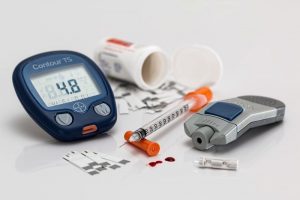
Consider how you will reintroduce calories:
Your stomach will shrink during the fast and you likely found yourself more easily satiated upon eating. If your goal is longterm appetite suppression this may work to some extent, but there is also the possibility that once you reintroduce food that your body will realise that it really needs to eat, and you may go off of the reservation a little.
As I say, this is *not* a weight loss strategy.
I have read in a few places that during a long fast, your digestive system slows to a crawl, producing less digestive enzymes and HCL – supposedly allowing the body to relocate this energy to healing. The flipside of this is that it takes a while to get back up to speed, so when you reintroduce food, you need to do it carefully.
Consider how much water you will drink:
Some folks say that if you drink too much, it could cause your body to loose too much salt, resulting in hyponatremia. Others tell you that drinking water helps to flush the toxins out (like the ‘science’ behind detoxes I think this is probably bullshit).
I drank quite a lot of tea, though I made no conscious effort to consume more or less than normal – I was fine.
Reiteration of warnings
I want to emphasise in more detail what can go badly wrong in a water fast.
Destruction of lean and vital body mass:
I alluded to this before, but it’s worth mentioning again. You will lose weight and some of this weight is going to be the type of weight that you don’t want to lose, such as muscle and ‘vital’ tissue. The longer you leave your fast, the more of the vital stuff you could lose.
Even if you still have fat to lose, you can still die.
‘Refeeding syndrome’:
This appears to be the biggest risk, and happens to folks who are ‘metabolically stressed’ or low on important nutrients. Sometimes the reintroduction of food after periods of deprivation can cause your body to go into shock, and this can kill you.
It can also take up to 4 days to kick in, which means it’s kinda insidious. You can also end up drinking too much water that flushes all the salt out of your body and puts you into cardiac arrest.
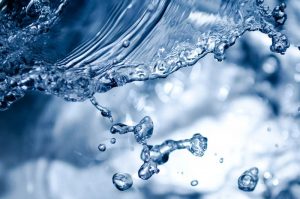
Don’t exercise hard:
This study suggests that, during fasted exercise in a glycogen depleted state at around 61% of your VO2 Max, your body may start breaking down LOTS of muscle mass as well as fat – which is certainly not good.[1]
Consider the state of your health BEFORE you do this thing:
As a reminder, here’s a video of a woman who almost died water fasting (she had pre-existing ulcerative colitis)
Consider the psychological implications:
If you have a tendency towards particularly disordered eating (I think most of us have some kind of disordered eating, but I’m talking specifically of binging and/or purging behaviour…) then not eating for 5 days might not be a very good idea.
The kind of hunger that you’re likely to experience could very well trigger something detrimental.
Brief Account/‘No Food Log’
All throughout the fasting period, I drink Whittard’s green tea like it’s going out of style. It has some caffeine and most importantly, it is WARM.
I don’t have a particularly huge meal the night before, and I wonder if that was a good idea or not.
The night before I dream a lot of old friends, places I’ve never been to, times in history I was not present for, and food (probably my brain turning the idea of food over).
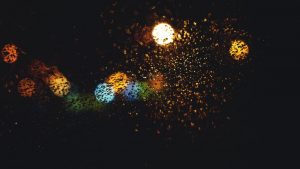
Day 1
I don’t exactly prepare for this thing as well as I could. I am aching quite profusely from the first day of squats in about 4 months (long story). I notice distortions in time – 1900 feels like 2100. I also haven’t really seen anyone all day – is this what prison is like? I am not particularly hungry but I am cold.
Day 2
I sleep 11 hours and end up experiencing a little nausea in the morning.
My emotions are taking a pounding today, I don’t know if the fast has exacerbated my normal depressive periods – this standard psychological self waterboarding is interspersed, strangely, with intermittent feelings of relaxation.
I’m colder than yesterday.
I go to bed earlier than his normal for me by about 2hrs because fuck even being awake right now.
Day 3
It’s hard to get out of bed – I get up about 2hrs early but am unmotivated to leave the only place I have been warm in for a while. Fasting has made me cold and lazy (energy sparing mechanism?) – two things I am not normally.
I am quite low energy but also quite relaxed. My emotions seem to have improved a lot. Keeping the house cold (to save energy) seems to have more effect than normal. I am wearing 3 t shirts and a hoodie in bed – and a scarf indoors at all times.

I decide it’s time for a weak black coffee is OK (zero calories). Half an hour later, still cold and aching, I feel better – I find myself really ‘feeling’ the music I am listening to and the experience I am having. I even find myself tapping my feet, whereas I’ve not really moved for the last 2 days.
And then a sense of euphoria – Jesus Christ I love this substance. Do I love coffee more than food? Do I need coffee more than food? No, but my body seems to think so…
…at this current time I am wearing the standard 3 t shirts, hoodie and scarf, but now I’ve added a dressing gown as well. Could this be peak coldness?
Day 4
Today the house is warmer due to my family returning from a holiday. I am warmer in bed and warmer in soul when I eventually crawl out of it. Company has been good for me too. I slept really well, crashed out with headphones still playing music quietly on them – usually a good sign. I feel great for most today, euphoric I suppose
I feel great for most today, euphoric I suppose
Possibly these emotional to balance out the all encompassing shittiness of day 2 – though having a warmer house and more company again has probably affected this. I do ‘get colder’ again later, as night comes and things cool down a little.
No indication of crazy breath or anything. Seem more energetic today than I was yesterday. The last 24 hours are something of a count down
Day 5
I break the fast half a day early due to last minute work commitments early on the day following (photography gig). I’ll be outside shooting corporate portraits, and it’s gonna be coooold. Today my sleep has been shitty – in fact, I was so energetic that I didn’t get much of it.
Here’s the strange thing – the first meal I expect to taste amazing – but it doesn’t, if anything it’s a letdown. That said the volume of food I can consume is much lower – 4 scrambled eggs and few spoonfuls of low fat yoghurt ruin me.
I later get a cappuccino from the machine at Makro. The milk is too flavoursome, and not in a good way. I appear to taste a strong, stale ‘cowness’ – so maybe I am more sensitive to certain things tastes?
That said, this is the only thing that disagrees with me, and may more be a reflection on Makro’s cappuccinos…
My core temperature warms up, and as predicted I no longer need to wear 3 shirts, hoodie, scarf etc. indoors – one t shirt is enough for me
Conclusions
It’s funny how we just take this thing, food, for granted. We habitually over eat, over consume, whilst people out there go for far longer without food than they would like to.
Do I now know what hunger is? I’m not sure. I broke my fast early because I knew that I wouldn’t be able to do productive work outside in my current state.
I’d probably have continued a little past day 5 if this hadn’t been the case. My theory is that, if I was really hungry I’d have broken the fast early or felt physically unable to continue (i.e faint, extremely ravenous, etc.)

I feel that doing a fast of 4-5 days every 3-6 months is enough for me. So I will certainly do this again, though I am loath to set a date for it just yet.
It would certainly be more appealing in summer.
Further reading, other stuff and resources
My gratitude goes to the following folks who shared, in great detail, their own water fasting experiences – giving me the chance to ‘look before I lept’. I highly recommend these:
http://www.nateliason.com/5-day-water-fast-health-benefits/
https://thequantifiedbody.net/5-day-water-fast-results/
This podcast may also prove insightful
Anyone who wants a far more technical read around autophagy may want to take a look at this document
Fast Mimicking Diets: a safer alternative? The jury is still out…
Lately there seems to be a new interest in research around ‘Fast Mimicking Diets’. This area may be worth keeping an eye on, as it there is the possibility of achieving similar benefits to a long fast, but without the obvious downside of depriving yourself of food for days at a time. [1] [2]
